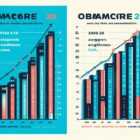What Influences Policy Shifts on Health Care Enrollment?

Do you ever wonder what drives changes in health care enrollment policies? Well, let’s dive into the factors that shape these shifts.
Political forces, economic influences, social dynamics, technological advancements, and stakeholder engagement all play a significant role. Understanding these driving forces is crucial to comprehending the ever-evolving landscape of health care enrollment.
So, buckle up and get ready for an evidence-based analysis of the factors that shape health care policy shifts.
Key Takeaways
- Political factors, such as the influence of interest groups, political parties, public opinion, and political leaders, play a significant role in shaping health care enrollment policies.
- Economic influences, including the cost of coverage, state of the economy, availability of subsidies or tax credits, and the balancing of affordability, accessibility, and sustainability, impact health care enrollment decisions and policy shifts.
- Social forces, such as public opinion, cultural beliefs, social movements, advocacy organizations, and demographic changes, also influence health care enrollment policies.
- Technological advances, such as digital health records, telemedicine, mobile apps and wearable devices, artificial intelligence, and policies on responsible and ethical use of technology, have the potential to shape health care enrollment policies and improve the enrollment process.
Political Factors
When considering policy shifts on health care enrollment, it’s important to examine the various political factors that influence decision-making processes.
The first political factor to consider is the influence of interest groups. These groups, such as insurance companies, medical professionals, and advocacy organizations, actively engage in lobbying and campaign contributions to shape health care policies. Their financial resources and ability to mobilize grassroots support can significantly impact the direction of policy shifts.
Another significant political factor is the role of political parties. Different parties often have distinct positions on health care, with Democrats generally favoring increased access and government involvement, while Republicans tend to support market-based solutions and limited government intervention. The control of political power by one party or the other can greatly influence the direction of policy shifts.
Furthermore, public opinion plays a crucial role in shaping health care policy. Politicians are responsive to the views of their constituents, and public opinion polls on health care consistently show that it’s a top concern for voters. As a result, politicians are more likely to support policies that align with the preferences of their constituents.
Lastly, the influence of political leaders can’t be underestimated. The president, members of Congress, and other elected officials have the power to shape health care policies through their positions and decision-making authority. Their personal beliefs and policy priorities can drive significant changes in health care enrollment policies.
Economic Influences
To understand the factors that shape policy shifts on health care enrollment, it is important to consider the economic influences that drive decision-making processes. Economic factors play a crucial role in shaping health care policies as governments strive to balance affordability, accessibility, and sustainability. By analyzing economic influences, policymakers can make informed decisions that best serve the needs of the population.
One of the key economic influences on health care enrollment is the cost of coverage. The affordability of health insurance plans directly impacts individuals’ decisions to enroll or opt-out. Factors such as premiums, deductibles, and out-of-pocket costs can significantly affect the uptake of health care coverage. Additionally, the availability of subsidies or tax credits can help make health insurance more affordable for low-income individuals and families.
Another economic influence is the overall state of the economy. During times of economic downturn, individuals may face financial constraints that make health care enrollment a lower priority. Conversely, during periods of economic stability and growth, people may be more willing and able to invest in health care coverage.
To provide a clear picture of the economic influences on health care enrollment, let’s consider the following table:
| Economic Factors | Impact on Health Care Enrollment |
|---|---|
| Cost of coverage | Affordability of health insurance plans affects individuals’ decisions to enroll or opt-out. |
| State of the economy | Economic stability or downturn influences individuals’ ability and willingness to invest in health care coverage. |
Social Forces
Social forces frequently shape policy shifts on health care enrollment. These social forces can include public opinion, cultural beliefs, and social movements.
Public opinion plays a significant role in shaping health care enrollment policies as policymakers often respond to the demands and concerns of their constituents. For example, if there’s a widespread belief that everyone should have access to affordable health care, policymakers may be more inclined to implement policies that promote enrollment and expand coverage.
Cultural beliefs also influence policy shifts, as different cultures may have varying views on the importance of health care and the role of government in providing it.
Additionally, social movements advocating for increased access to health care can create pressure on policymakers to make changes. Movements like the push for universal health care or the fight for reproductive rights have brought attention to the need for comprehensive health care policies.
Technological Advances
As technology continues to advance, it has a significant impact on policy shifts regarding health care enrollment. The emergence of new technologies has revolutionized the way health care is delivered and accessed, leading to changes in policies and regulations.
Here are some key ways in which technological advances have influenced policy shifts on health care enrollment:
- Digital health records: The transition from paper-based records to electronic health records has made it easier for individuals to access and share their medical information. This has led to the development of policies that promote interoperability and data sharing between health care providers, improving the efficiency and accuracy of health care enrollment processes.
- Telemedicine: The rise of telemedicine has allowed individuals to receive medical consultations and care remotely, eliminating the need for in-person visits. This has led to the implementation of policies that support telehealth services and expand access to care, particularly in rural and underserved areas.
- Mobile apps and wearable devices: The proliferation of mobile apps and wearable devices has empowered individuals to take control of their health and make informed decisions. This has prompted policies that encourage the use of these technologies to monitor health conditions, promote preventive care, and facilitate health care enrollment.
- Artificial intelligence and machine learning: The use of artificial intelligence and machine learning algorithms has the potential to improve health care decision-making and streamline enrollment processes. Policies are being developed to ensure the responsible and ethical use of these technologies, while also addressing issues related to privacy and data security.
Stakeholder Engagement
Active engagement of stakeholders plays a crucial role in shaping policy shifts on health care enrollment. Stakeholders, including government agencies, health care providers, insurance companies, advocacy groups, and consumers, bring diverse perspectives and expertise to the table. By actively involving these stakeholders in the policy-making process, policymakers can gain valuable insights and ensure that the policies reflect the needs and concerns of all parties involved.
Stakeholder engagement can take various forms, including public consultations, advisory committees, and collaborative decision-making processes. These mechanisms allow stakeholders to provide feedback, share their experiences, and contribute to the development and implementation of health care enrollment policies. For example, government agencies may seek input from health care providers to understand the impact of proposed policies on their operations and patient care. Insurance companies may provide insights on the feasibility and potential consequences of different enrollment options. Advocacy groups can represent the interests of specific populations and highlight the unique challenges they face.
Evidence suggests that meaningful stakeholder engagement leads to more informed and effective policies. A study published in the Journal of Health Politics, Policy and Law found that states with greater stakeholder involvement in health care reform efforts were more successful in implementing and expanding Medicaid programs. This highlights the importance of engaging stakeholders in the decision-making process to ensure the successful implementation of health care enrollment policies.
Frequently Asked Questions
How Do Political Factors Impact Policy Shifts on Health Care Enrollment?
Political factors impact policy shifts on health care enrollment by influencing decisions made by lawmakers and policymakers. These factors can include political ideology, public opinion, lobbying efforts, and the priorities of the governing party.
What Are the Economic Influences That Drive Changes in Health Care Enrollment Policies?
Economic influences play a significant role in driving changes in health care enrollment policies. Factors such as rising healthcare costs, changes in employment rates, and fluctuations in government funding can all impact policy decisions.
How Do Social Forces, Such as Public Opinion or Activism, Contribute to Policy Shifts on Health Care Enrollment?
Public opinion and activism play a crucial role in shaping policy shifts on health care enrollment. These social forces can mobilize support for change, forcing policymakers to respond and adapt to the needs and demands of the public.
What Role Do Technological Advances Play in Influencing Changes in Health Care Enrollment Policies?
Technological advances have a significant impact on health care enrollment policies. They streamline processes, enhance accessibility, and improve data management. These advancements prompt changes in policy to adapt to the evolving landscape of health care delivery.
How Does Stakeholder Engagement, Including Input From Various Groups and Organizations, Shape Policy Shifts on Health Care Enrollment?
Stakeholder engagement, including input from various groups and organizations, shapes policy shifts on health care enrollment. This involvement allows for a more comprehensive understanding of the needs and preferences of those affected by the policies, leading to informed decision-making.



